
Articles
Interviews
2020: The Year of Online Teacher Training? ASU Entrepreneur-in-Residence David Levin Has Taken Up the PD Cause with Two Massive Virtual Events
By Henry Kronk
December 16, 2020
David Levin has led one of the largest educational publishers in the world. Before that, he made a name for himself by completely revamping the business operations of a 200 year-old U.K. publisher. But for the past year, he has been obsessed with online teacher training.
 “The lack of emphasis on pedagogy to support online and hybrid learning—that is just striking,” Levin said over videoconference (pictured right). When the Covid-19 pandemic broke out early this year, the ASU Entrepreneur-in-Residence quickly organized a massive free event, REMOTE, to help connect postsecondary educators with skilled online learning practitioners. The event drew 26,000 participants. Now, Levin is working to repeat the conference for K-12 teachers. ASU’s REMOTE K12: The Connected Teacher Summit will go down on January 9. It is free to attend, and registration is currently open. Educators who attend can earn a professional credential from ASU.
“The lack of emphasis on pedagogy to support online and hybrid learning—that is just striking,” Levin said over videoconference (pictured right). When the Covid-19 pandemic broke out early this year, the ASU Entrepreneur-in-Residence quickly organized a massive free event, REMOTE, to help connect postsecondary educators with skilled online learning practitioners. The event drew 26,000 participants. Now, Levin is working to repeat the conference for K-12 teachers. ASU’s REMOTE K12: The Connected Teacher Summit will go down on January 9. It is free to attend, and registration is currently open. Educators who attend can earn a professional credential from ASU.
Levin’s involvement in online teacher teacher is doubly ironic. He joined ASU in late 2019 right as his department (ASU’s EdPlus) debuted an end-to-end adaptive education platform to support its entire undergraduate biology degree. Since, Levin has also joined the AI developer SparkBeyond as chairman, among other ventures.
Hearing Levin speak about the integration of learning technology and teacher training, however, his outlook on education comes into focus.
How 2020 Has Brought Online Teacher Training Front and Center
“Look at the massive investment K-12 has made in technology—and it has been massive,” Levin said. “Contrast it with the investment that pretty much any other institution made in technology, all the way from the military to government to business. The biggest investment by far has been in software and in evolving workflow. People have been asking how they can use technology to do something differently. Well, education didn’t do any of that.”
ASU has announced the REMOTE K12: The Connected Teacher Summit in which teachers and attendees can register for free and earn a ASU K12 Remote Teaching Skills Certificate from @asueducation. Read more and register: https://t.co/YFYLdUGrcA #remotelearning #certification
— ASU Helios Decision Center (@DCEdExASU) November 20, 2020
Levin is hardly the first individual who has criticized K-12 edtech spending. Sector-wide spending in the U.S. totaled an estimated $13 billion before the pandemic. We won’t know the full cost of education technology during 2020 for some time. A sort of cottage industry has formed to help schools make better use of their edtech licenses. But tracking edtech’s return on investment is not easy. And except for educators who have proactively trained in the online modality, there was little incentive until 2020 for educators to seek online teacher professional training.
“There has been no corresponding investment in the follow-through, the pedagogy, the teaching, the workflow in a business sense,” Levin said. “It’s funny because, in every other domain, digital technology has totally changed practices and conduct. Productivity is a word with which you should tread cautiously in the world of education. But however you measure it, militaries are more effective today. Corporations are faster-moving and more agile. Governments deliver services in a totally different way. And yet, the way we’ve looked at education hasn’t changed.”
The Connected Teacher and Faculty Summits
Throughout 2020, Levin has been working to correct course. In partnership with ASU (and many sponsors like Pearson and the Bill and Melinda Gates Foundation), Levin helped organize REMOTE: The Connected Faculty Summit this July. The event featured experienced online educators who presented some high impact actionable best practices. It drew 26,000 professors and lecturers (including roughly 700 K-12 teachers), who spent an average of three to five hours engaging in the event. Individual sessions saw audiences in excess of 5,000 people.
“We got sack loads of fantastic responses,” Levin said. “People were saying, ‘My institution has not done any teacher professional development. I’ve had no idea how to approach this.’”
Following the event, there was an overwhelming interest in repeating it with a focus on K-12. This follow up—REMOTE: The Connected Teacher Summit—will occur on Saturday January 9.
According to Levin, many themes are common across K-12 and higher ed online teacher professional training. But there are also important differences.
“Higher ed instructors have a dozen years, fifteen years of building domain expertise in delivering online learning to a large body of students,” Levin said. “That practice existed before 2020. When we built the agenda for that event, we could look to people who were running grant programs and who were known in the network.
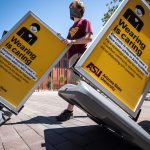
“The contrast with K-12 couldn’t be stronger,” Levin continued, “because the domain expertise hasn’t been developed in the same way. The muscle is still really raw.”
As a result, the second REMOTE conference is holding a competition for K-12 educators. ASU is asking attendees to nominate those they believe have developed strong online teaching or leadership capabilities. Selected winners will be invited to present on the practices they have developed.
Levin acknowledges that proper online teacher professional training takes years. The REMOTE conferences present a means for educators to improve their online teaching in the absence of that possibility.
“We’re not providing a holistic course in how to do fantastic online and hybrid teaching,” Levin said. “We’re designed to be a fantastic resource available on-demand. Let’s say Miss Jones is going to teach a class tomorrow and is just freaking. She needs some ideas. Over the course of fifteen minutes, the conference is going to present some great ideas about her specific domain.”
Conference presentations are organized by grade level and teaching disciplines. Besides various subjects, these disciplines will also include things like serving special needs students or addressing mental health issues.
Looking Forward to 2021
Levin hopes that the lessons and best practices of online teacher professional training learned this year will not be forgotten.
“If we go back to school, and everybody says, ‘Thank God for that Covid-19 vaccine. Now what were we doing?’ That to me will be a terrible wasted opportunity,” Levin said. “It will be an indictment, a terrible indictment of education. We’ve learned things that are really important. And it’s been very painful to learn them. We shouldn’t forget them.”
REMOTE: The Connected Teacher Summit will go down on January 9 for one day. Teachers can attend at no cost. Registration is currently open.
Featured Image courtesy of ASU.


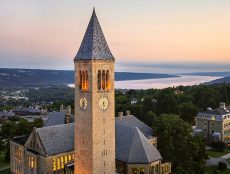
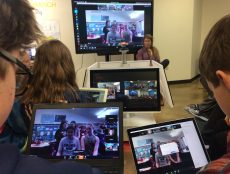

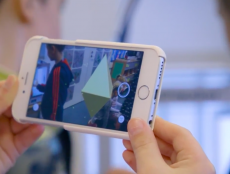
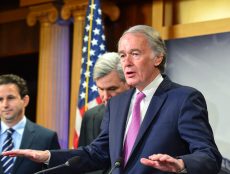


No Comments